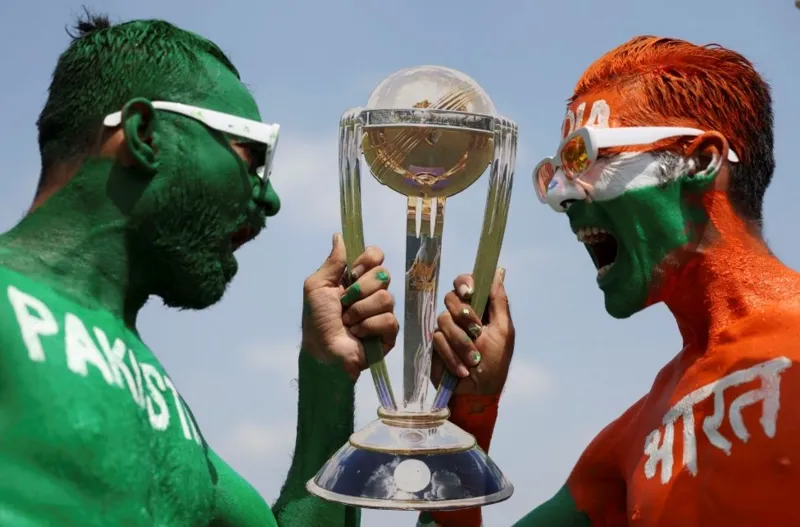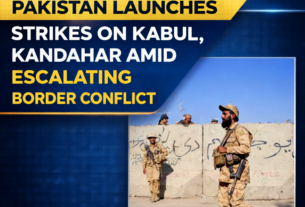Roaring crowds, faces painted blue and green, flags waving like battle standards—this is the electrifying atmosphere of India vs Pakistan, a cricket rivalry that transcends sports. The latest Netflix documentary, The Greatest Rivalry: India vs Pakistan, delves into this storied contest, showcasing dramatic footage of iconic matches, the Wagah border, and the deep historical ties between the two nations.
India’s Virender Sehwag sets the stage: “This contest is bigger than one between the bat and ball.” Pakistan’s Waqar Younis echoes the sentiment, calling India vs Pakistan the greatest rivalry in cricket. India’s R Ashwin agrees, stating, “I think this is bigger than the Ashes.” The political undertones add fuel to the fire, as Ramiz Raja remarks that the rivalry is shaped by more than just cricket.
Despite wars, border tensions, and political standoffs, India vs Pakistan cricket has endured, driven by history and national pride. Even when bilateral series are halted, the rivalry thrives in ICC tournaments, where every match becomes a high-stakes spectacle. Yet, Pakistan’s crushing defeat to India at the Champions Trophy has reignited debate—has the once-balanced rivalry lost its competitive edge?
Looking at recent history, India has dominated India vs Pakistan encounters, winning six of the last eight ODIs. Pakistan’s last major victory was the 2017 Champions Trophy final, now a distant memory. In light of India’s consistent supremacy, Pakistani media outlets like Dawn have questioned whether the rivalry is more nostalgia than reality.
Pakistani journalist Zohaib Ahmed Majeed argues that India vs Pakistan cricket remains relevant only due to political narratives. “If not for the political tensions, this rivalry would feel lopsided. On the field, it’s a professional, well-structured team against an inconsistent, crisis-ridden unit,” he states. Indian media is equally unsparing—India Today suggests that Pakistan’s inability to compete has turned the rivalry into a one-sided affair.
Pakistan’s struggles in India vs Pakistan clashes are compounded by deeper issues—political instability, inconsistent selection policies, and an underdeveloped domestic structure. Since the 2009 attack on Sri Lanka’s team bus, Pakistan cricket has faced isolation, while India has thrived, bolstered by the IPL and a well-established system. The absence of Pakistani players in the IPL further alienates them from modern cricket’s biggest stage.
Cricket analyst Osman Samiuddin highlights the sense of exclusion Pakistani players feel in India vs Pakistan matchups. “They see Indian, Australian, and English cricketers benefitting from global leagues, while they remain sidelined,” he explains. This marginalization, coupled with internal crises, has significantly weakened Pakistan’s competitive spirit.
Once, the “war without guns” analogy made sense when Pakistan, led by Imran Khan with a formidable pace attack, regularly challenged India. However, columnist Nadeem Farooq Paracha argues that corporate interests have hijacked the India vs Pakistan narrative, turning it into a marketing spectacle rather than a balanced contest.
The India vs Pakistan rivalry remains a commercial goldmine, ensuring record viewership and packed stadiums worldwide. ICC and broadcasters leverage the history of the clash, selling the spectacle even if the competition no longer justifies the hype. Brand consultant Santosh Desai suggests that India’s dominance sustains the rivalry’s appeal, rather than genuine competitiveness.
India’s vice-captain Shubman Gill dismisses concerns about overhyping, insisting that India vs Pakistan remains the most anticipated contest in cricket. “Fans love watching this match. If it makes millions of people happy, who are we to say it’s overhyped?” he remarks. The numbers back him—over 600 million viewers tuned in for the latest showdown, setting streaming records.
For now, India vs Pakistan continues to be cricket’s most talked-about rivalry, even if, as cricket analyst Ayaz Memon notes, “the hype is more thrilling than the cricket itself.”
Don’t Miss a Beat – Follow my What’s App channel





